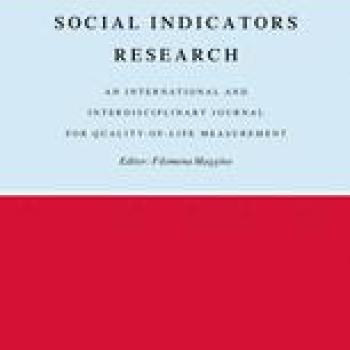Publication Information

The authors review the contribution of qualitative methods to exploring concepts and experiences of well-being among children and adults living in developing countries. They provide examples illustrating the potential of these methods for gaining a holistic and contextual understanding of people's perceptions and experiences. Some of these come from Young Lives, an innovative long-term international research project investigating the changing nature of child poverty in India, Ethiopia, Peru and Vietnam (http://www.younglives.org.uk), and others from the Well-being in Developing Countries ESRC research group (WeD), an international, inter-disciplinary project exploring the social and cultural construction of wellbeing in Bangladesh, Ethiopia, Peru and Thailand (http://www.welldev.org.uk).
The authors show how qualitative methods can be used both alongside and as part of the development of sensitive and relevant quantitative measures, and provide some practical and methodological recommendations. They propose that qualitative approaches are essential in understanding people's experiences of well-being, both now and in the future. However, the authors caution that while these offer many benefits, for example, a less structured and hierarchical engagement between researcher and participant; they require time, energy, and sensitivity. Qualitative methods also work best when used by trained and experienced researchers working in the local language/s in a community where some rapport has already been established. Finally, the paper recommends combining data from qualitative and quantitative approaches (e.g. psychological measures or household surveys) to enhance its explanatory power.
Keywords: Well-being, Mixed methods research; Qualitative research; Developing countries; Research methods.
The final published version of the article is available on the journal website.

The authors review the contribution of qualitative methods to exploring concepts and experiences of well-being among children and adults living in developing countries. They provide examples illustrating the potential of these methods for gaining a holistic and contextual understanding of people's perceptions and experiences. Some of these come from Young Lives, an innovative long-term international research project investigating the changing nature of child poverty in India, Ethiopia, Peru and Vietnam (http://www.younglives.org.uk), and others from the Well-being in Developing Countries ESRC research group (WeD), an international, inter-disciplinary project exploring the social and cultural construction of wellbeing in Bangladesh, Ethiopia, Peru and Thailand (http://www.welldev.org.uk).
The authors show how qualitative methods can be used both alongside and as part of the development of sensitive and relevant quantitative measures, and provide some practical and methodological recommendations. They propose that qualitative approaches are essential in understanding people's experiences of well-being, both now and in the future. However, the authors caution that while these offer many benefits, for example, a less structured and hierarchical engagement between researcher and participant; they require time, energy, and sensitivity. Qualitative methods also work best when used by trained and experienced researchers working in the local language/s in a community where some rapport has already been established. Finally, the paper recommends combining data from qualitative and quantitative approaches (e.g. psychological measures or household surveys) to enhance its explanatory power.
Keywords: Well-being, Mixed methods research; Qualitative research; Developing countries; Research methods.
The final published version of the article is available on the journal website.

